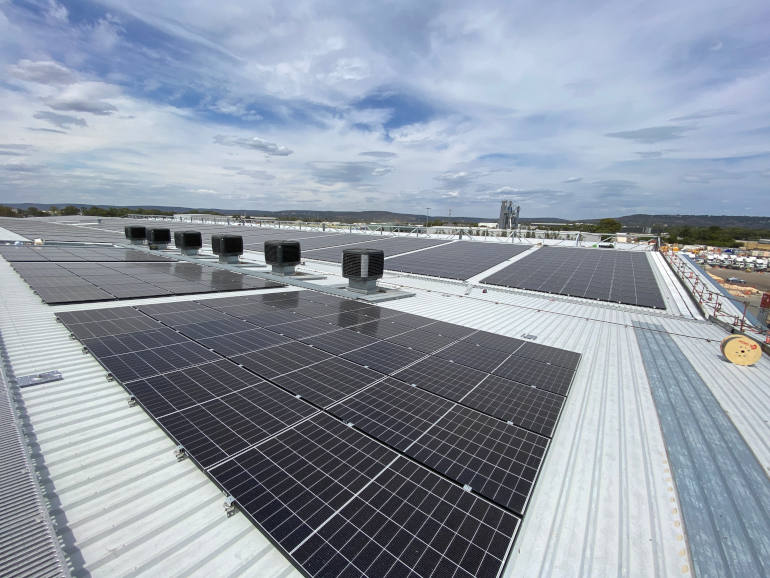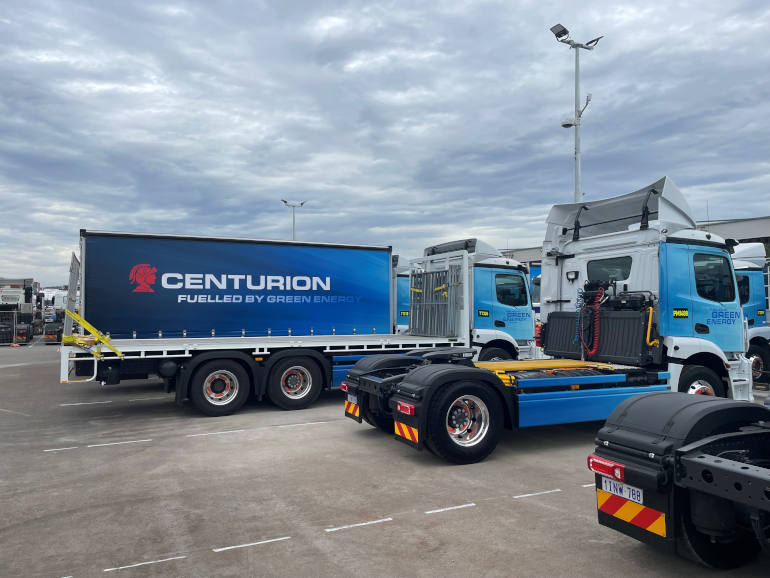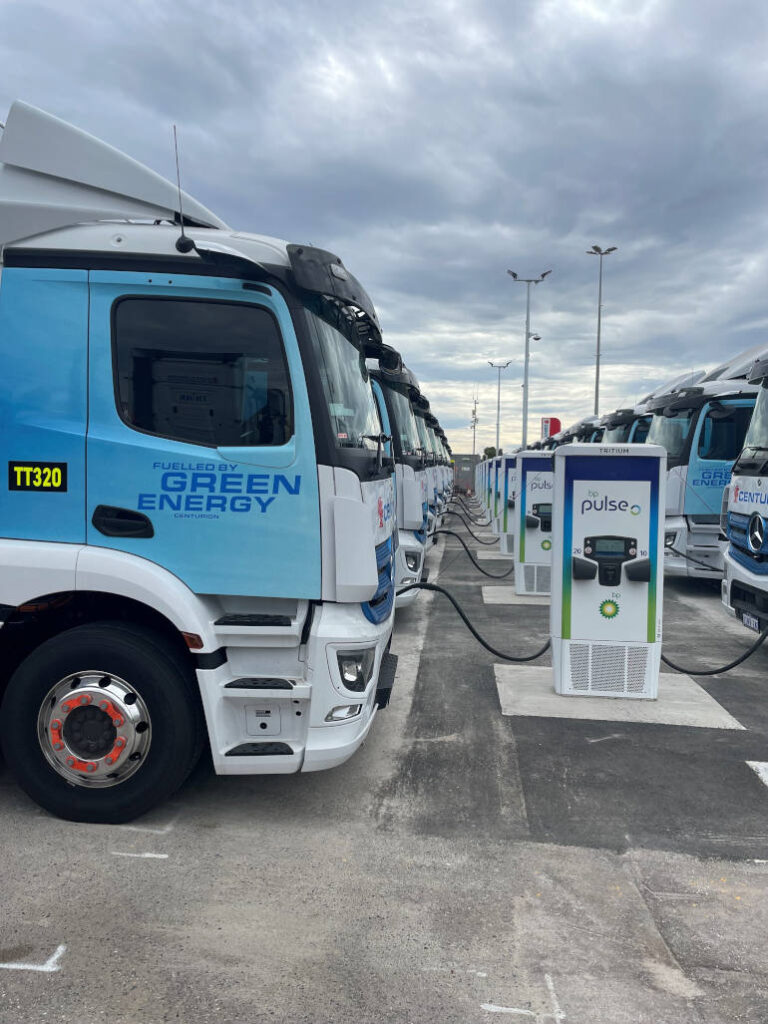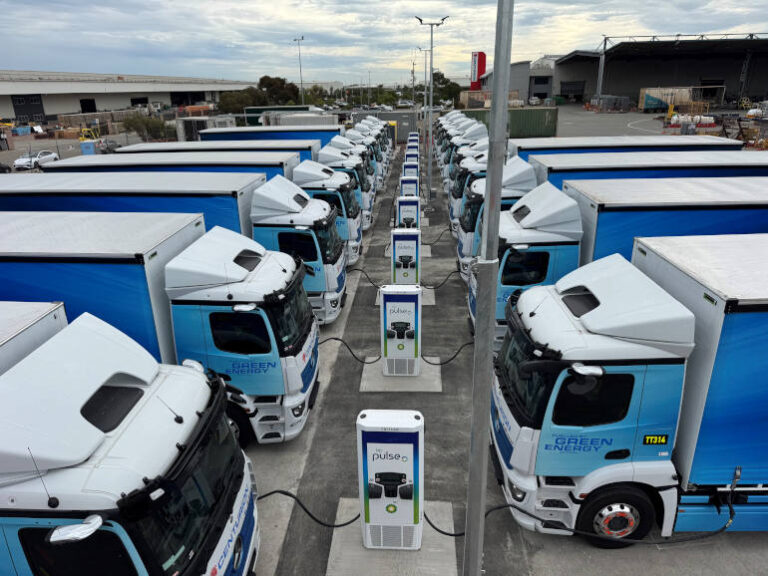Centurion is making a bold move toward a more sustainable future by integrating electric vehicles and renewable energy solutions into its logistics operations. As one of Australia’s leading transport and logistics providers, Centurion’s commitment to sustainability is evident in the rollout of its first 20 battery electric vehicles (BEVs). These zero-emission trucks are now operating across Perth’s metropolitan routes, significantly reducing the company’s carbon footprint while maintaining the high level of service its customers expect.
A Strategic Shift to Electric Transport
The transition to electric trucks marks a major milestone in Centurion’s long-term sustainability strategy. The company worked closely with Daimler to introduce the Mercedes-Benz eActros 300 into its fleet. This strategic decision was influenced by Centurion’s existing relationship with Daimler and the assurance of robust support, service reliability, and technology integration. With a focus on emissions reduction, the deployment of these trucks aligns with global and national sustainability objectives, ensuring Centurion remains ahead of industry expectations.
Centurion’s investment in BEVs is not merely an isolated initiative but part of a broader effort to reimagine its logistics operations. The trucks operate within an ecosystem designed to maximise efficiency, with optimised routes and advanced charging infrastructure ensuring minimal operational disruptions.
Harnessing Renewable Energy for Charging
Centurion has gone beyond just electrifying its fleet. Recognising that true sustainability requires an end-to-end approach, the company has also invested in renewable energy infrastructure to power its vehicles. The company has built extensive solar arrays at key locations, ensuring that its electric trucks are charged using clean, renewable energy.
The solar installation boasts a capacity of 4.4 megawatts, coupled with a battery storage system of 10.32 megawatt-hours. This setup allows Centurion to maintain off-grid operations, making the fleet self-sufficient in energy production. With 30 dedicated charging stations—including dual 50-kilowatt chargers and two fast chargers with 150-kilowatt capacity—the fleet can be efficiently charged overnight, ensuring readiness for daily operations.
This comprehensive approach is designed to accommodate the challenges posed by Western Australia’s climate, particularly during winter months when solar generation may be lower. To address this, Centurion has incorporated backup systems powered by Hydrotreated Vegetable Oil (HVO), ensuring consistent charging availability regardless of weather conditions. Over time, as infrastructure develops, the plan is to connect parts of the network to the grid, further enhancing flexibility and reliability.

Operational Efficiency and the Role of Electric Trucks
The decision to introduce 20 electric trucks is not just about sustainability—it also supports greater operational control. Historically, Centurion outsourced portions of its metropolitan pick-up operations. By transitioning these responsibilities in-house with electric vehicles, the company now has more control over service delivery and fleet management.
The electric trucks operate within a carefully structured schedule. Throughout the day, they collect goods for transport, returning to the depot in the evening for overnight charging. However, Centurion has designed its charging infrastructure to allow for midday charging as well. This flexibility enables some trucks to recharge and return to service for late-afternoon or evening runs, ensuring maximum utilisation of the fleet and its energy resources.
Each vehicle’s charging cycle is managed to align with energy production from solar arrays, ensuring that energy consumption remains optimised. This meticulous planning not only supports emissions reduction but also enhances cost-efficiency by reducing reliance on external energy sources.

Expanding the Electric Fleet and Future Goals
The introduction of these 20 electric trucks is only the beginning of Centurion’s broader sustainability ambitions. The company is already considering further expansion of its BEV fleet, with an emphasis on scaling up operations based on the learnings from this initial rollout.
Additionally, Centurion is assessing the potential for integrating more renewable energy solutions into its broader logistics network. While the current solar infrastructure is concentrated in Perth, future developments may see similar investments in other regions as the transition to sustainable transport accelerates.
The ultimate goal is to create a logistics model that is not only environmentally responsible but also financially viable. By reducing reliance on diesel-powered vehicles and minimising energy costs through self-generated renewable power, Centurion is positioning itself as a leader in sustainable transport solutions.
Industry Implications and Leadership in Sustainability
Centurion’s transition to electric trucks and renewable energy is a significant step for the broader logistics industry. It sets an example for other fleet operators, demonstrating that sustainability and operational efficiency can go hand in hand. The move aligns with broader industry trends, where logistics providers are under increasing pressure to lower emissions and adopt greener technologies.
As regulatory requirements tighten and customers demand more environmentally responsible supply chains, Centurion’s proactive approach places it ahead of industry shifts. By taking the lead in electric vehicle adoption and renewable energy integration, the company is not only reducing its environmental impact but also future-proofing its operations against evolving market expectations.
Centurion’s investment in electric trucks and renewable energy marks a turning point in Australian logistics. Through careful planning, strategic partnerships, and a commitment to sustainable innovation, the company is proving that zero-emission transport is both feasible and commercially viable.
By deploying 20 electric trucks and supporting them with a renewable energy ecosystem, Centurion is leading by example, showcasing how logistics companies can take meaningful steps toward sustainability. With plans for further expansion and continuous improvements in energy efficiency, Centurion is well on its way to reshaping the future of transport in Australia—one electric vehicle at a time.







